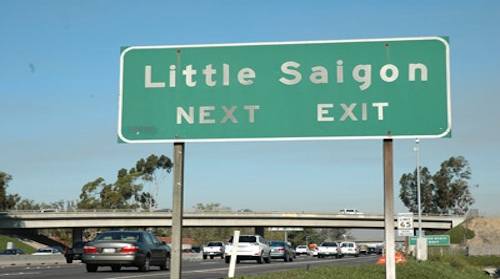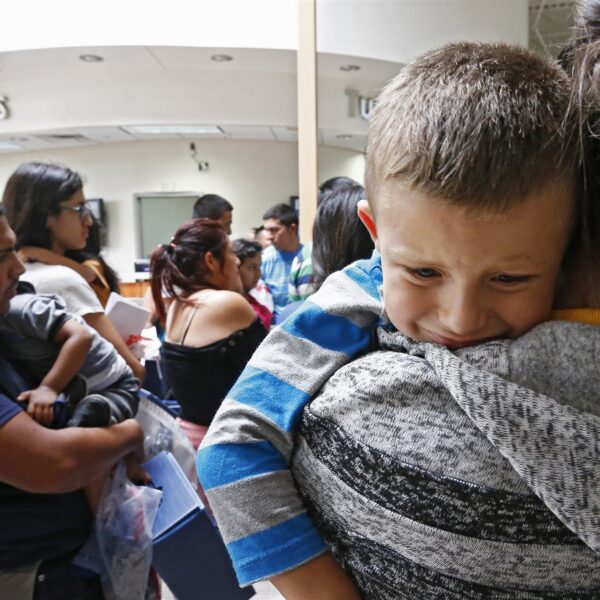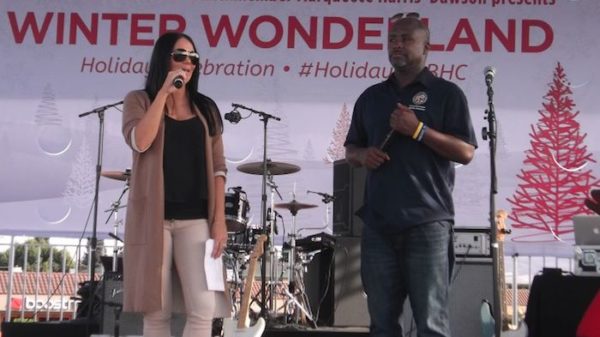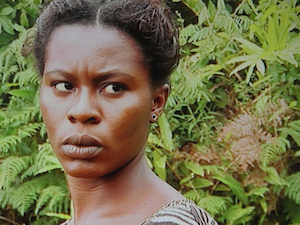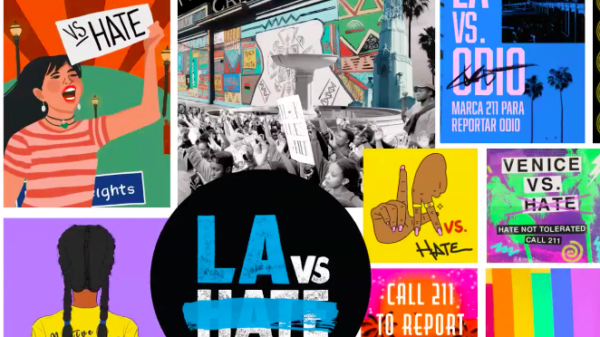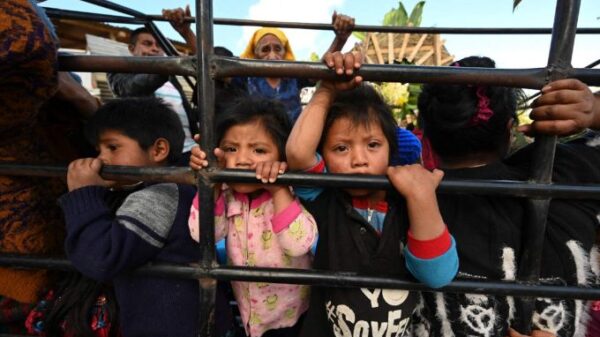Ed. Note: April 30 2013,marked 38 years since the United States withdrew from Vietnam. In that time, says author and NAM editor Andrew Lam, connections to the homeland for Vietnamese Americans have evolved, even as their roots in the U.S. deepen. A longer version of this essay originally appeared in the Cairo Review.
Mẹ Việt Nam ơi, Chúng Con Vẫn Còn đây (Oh Mother Vietnam, We Are Still Here)
The lyrics from this sentimental song come back to me once in a while, especially when I think of the Vietnamese Diaspora and its complicated relationship with its homeland. One bitter evening on April 30, 1976, in an auditorium in downtown San Francisco, my family and I sang it to mark our first anniversary in exile.
Nearly four decades have passed since then. If I were to sing it now, not that I remember the lyrics entirely, I would sing it with a tone full of irony. So removed from that emotional juncture, I wonder to what extent is the song’s declaration still true? Vietnam is accessible now to the Diaspora, but to what extent are we still here for her? Who, in fact, are we?
More than four million Vietnamese have fled or migrated abroad since the end of the Fall of Saigon in 1975. They have re-established themselves elsewhere, scattered on five continents. These days you can find restaurants selling pho, banh mi, and other Vietnamese favorites in South Africa, Brazil, Dubai, and beyond. I myself have relatives living in six different countries on three continents. But the largest numbers of the Diaspora ended up in North America, and the largest portion of that population resettled in California, where my family and I, and most of my relatives, now live.
Ours is an epic filled with irony: traumatized by wars and bound by old ways of life where land and ancestors are worshipped, where babies’ umbilical cords are traditionally buried in the earth as a way to bind them to the ancient land, we relocated to a country known for its fabulous fantasies, high-tech wizardry, and individualistic ambition.
Take, for example, this bus trip I am on. A comfortable bus going south, with the nostalgic music of Trinh Cong Son, sung by the smoky-voiced Khanh Ly, echoing from the overhead speaker. Son was the most famous Vietnamese composer during the Vietnam War, the master of love and antiwar songs, and Khanh Ly the most famous singer. The two old Vietnamese ladies next to me are bragging about their children and their grandchildren, and how well they’re doing, and so on. Behind me, a couple of middle-aged men are humming along with this song of their youth. And up front two kids are playing handheld computer games while their mother talks endlessly on her cell to someone about her restaurant business.
Vietnamese voices rise and fall; I close my eyes and listen. I swear I could be in Hue heading south to Saigon or Dalat.
Except, I am not. I am on the other side of the Pacific, on my way from San José to Orange County, going down Interstate 5 in a Vietnamese-owned bus. It is owned by one of three competing Vietnamese companies, which speaks to the infrastructure of our ethnic community in America.
The reason I am on this bus is this: to see for myself the Vietnam War Memorial in Orange County that I’ve heard so much about from my parents. My father, once a high-ranking South Vietnamese officer, was on the advisory committee of this memorial-building endeavor. On one evening a decade or so ago, the Vietnamese in Orange County raised more than $200,000 for the memorial. Well-known Vietnamese singers sang for free and ticket receipts all went into the memorial fund. The result was two larger-than-life statues, one depicting a South Vietnamese, the other an American GI, standing side by side in combat fatigues adjacent to the city hall in Westminster, the heart of Orange County’s Little Saigon.
Standing in front of it, I am of two minds. I feel something akin to patriotism for my long lost homeland stir in my blood as well as a deep sadness for the men who fought and died—and for those who survived but were broken by the experience; I feel, at the same time, a dire need for distance. While I stand there on a Saturday evening, a couple of older women light incense and pray and several older Vietnamese men in army uniforms stand guard nearby. Something somber and heavy in their stance suggests a collective sorrow that causes me to shudder; their eyes—eyes that no doubt saw the worst of the old war—convey anger, hatred, and bitterness. Their faces remind me of my father’s.
It occurred to me then that while one strand of history still defines those men in army uniforms and, of course, my father, another strand of history was redefining me. My father considers himself an exile living in America, part of an increasingly small population; I see myself as an American journalist who happens to make many journeys to Vietnam without much emotional fanfare. For me, Vietnam, my country of birth, and its tumultuous history have become a point of departure, a concern, but no longer home.
The irony is that because he holds Vietnam so dear to his heart, my father cannot return to the country to which he owes allegiance, so long as the current regime remains in power. His is a rage left over from the Cold War that has no end in sight. History, for my father and for those men who still wear their army uniforms at every communal event, has a tendency to run backward, to memories of the war, to a bitter and bloody struggle whose end spelled their defeat and exile. And it holds them static in a lonely nationalist stance. They live in America but their souls are still fighting an unfinished war in Vietnam.
The old passion lives on, but it must now contend with the new integration: the Vietnamese Diaspora, no longer in exile, is steadily finding itself in Vietnam’s orbit. Lan Nguyen, writing for Nguoi Viet, the largest Vietnamese paper in Orange County, noted that “While the younger generation of Vietnamese Americans shares with elders a general concern regarding human rights, democracy, and freedom in Vietnam, they are not as invested in the cause.” Nguyen, who lives in San José, cites language barriers and lack of experience under communism as the factors that help widen the generation gap. “The Vietnamese American youth…often are disillusioned as it seems their every effort to help Vietnam is met with criticism by those older than them. The elders in turn are horrified to see young people organize philanthropic missions to Vietnam.”
The question remains whether the Vietnamese Diaspora can be an effective agent of change and find new ways to influence the future of the country. To do so, it needs to ask tough questions. Is there real freedom for those who give in to their hatred and are ruled by it? Is democracy for Vietnam possible when those who live in America often fail to understand and practice it with their own communities, and the majority of those in Vietnam barely show any interest? And what does it take to move beyond anger and lust for revenge, and create space for constructive discussion and dialogue and spur new political thoughts?
It is true: once the hate is gone, in its place is pain. Those who cling so strongly to hatred, I suspect, are often those who fear what comes after it. But it is true also that many of us have moved on beyond the old rancor, beyond that us-versus-them mentality. We have learned to absorb our pain and grief and are negotiating our positions between East and West, memories and modernity, traditions and individual ambitions, old loyalties and new alliances, such that we are in the process of recreating a whole notion of what it means to be Vietnamese, a definition that is both open-ended and inclusive.
So, Mother Vietnam, in a sense we are still here, but we aren’t who we used to be. The new generations born abroad may still behold that sense of common origin, may still take pride in their heritage, but they are not bound by the idea that Vietnam is their destiny. Rather, it’s one of their many destinations.
A new song is needed, one that describes an individual with multiple affiliations, with additional homelands, someone who shares a sense of common origin but is not bound by collective nationalism. The old umbilical cord, unearthed at last, is transmuted into a new trans-pacific verse, and is an epic in the making.
Andrew Lam is editor and cofounder of New America Media. He is the author of Perfume Dreams: Reflections on the Vietnamese Diaspora, East Eats West: Writing in Two Hemispheres, and most recently, a collection of short stories, Birds of Paradise Lost. Vietnamese translation: Mẹ Việt Nam ơi chúng con vẫn còn đây.

